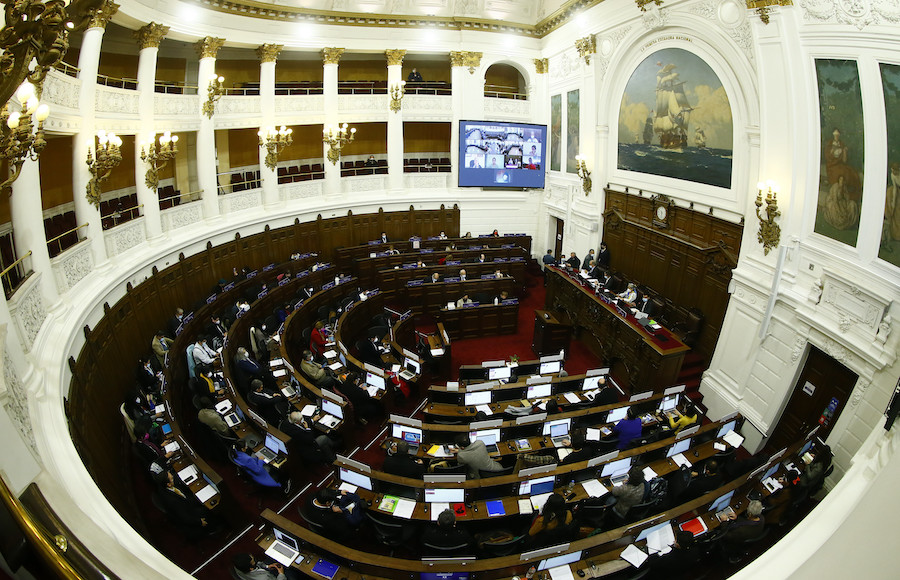
The lights at Chile’s former congress building in downtown Santiago almost never go off these days as delegates to the Constitutional Convention, thick dossiers under their arms, shuttle wearily between debates that can last 12 hours. During brief breaks, they confer about complex resolutions. Votes come fast and furious.
As a result, radical proposals that could fundamentally remake the society and economy and drive away investors are slipping through. One of the most controversial so far — and there are more coming — offers a veto to indigenous groups for any matter or issue that affects their rights.
Fuad Chahin, a delegate and former president of the Christian Democratic party, was shocked by it. “The article requires consent from indigenous people for almost everything,” he said. “It could halt a ton of development projects.”
Three delegates, speaking on condition of anonymity, acknowledged that the sheer pace of work could lead to oversights, with two indicating some had backed the indigenous article without fully realizing what it said. They are hoping that the final “harmonization” committee charged with eliminating contradictions in the text can somehow stop it.
February, the height of summer in the Southern Hemisphere and usually the most soporific month in Chile, is turning into a wild ride. Every day brings startling news as 154 elected delegates work at full tilt on rewriting the nation’s charter, and the rest of the country, many at the beach, try to keep up. The convention has a deadline of July 4, to be followed by a national referendum.
Enormous changes seem afoot. For three decades, as Chile enjoyed a reputation for free-market growth and stability, anger over inequality was quietly gnawing at the social fabric. In late 2019, violent demonstrations erupted. Now, with a new constitution being drafted and the youngest and most leftist government in half a century entering office, proposals promoting a green future, gender equality and social and indigenous rights are sailing through.
In the pipeline for plenary votes that are spooking the market are articles that would nationalize the mining and lithium industries, ban mining and forestry on indigenous lands, replace the senate and redesign private property rights.
In addition to everything else, the convention is running out of time, Credicorp said in a recent note. To seek an extension from congress “could weaken public approval of the convention and increase the likelihood of rejection.” And since most delegates lean left, more time would not necessarily lead to moderation.
The public, who voted in favor of this rewrite, is expressing concern. Those who would approve the final text based on what they know now have declined to 47% from 56% in January, according to a poll by Cadem.
Major newspapers, most with ties to center-right and right-wing parties and the economic establishment, are flooded with editorial columns expressing concern.
Last week a group of 75 public figures, many of them supporters of the center-left governments that led Chile’s democratic transition in the ‘90s, published a letter expressing alarm over what it called a “euphoria that wants to start from scratch” regarding basic principals, while silencing moderates.
“A generation cannot assume the power to re-establish the Republic,” Senate President Ximena Rincon told reporters, criticizing the convention’s decision to eliminate the upper chamber, a proposal which will soon face a final plenary vote.
Ricardo Brodsky, former director of Chile’s Museum of Memory and Human Rights, is no rightist. Yet he took to the opinion page of the conservative El Mercurio newspaper to say the convention’s planned changes to the judicial system have many legal professional deeply worried.
(By Valentina Fuentes, with assistance from Philip Sanders and Eduardo Thomson)
Comments